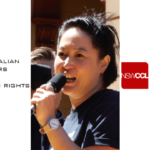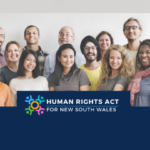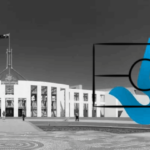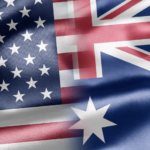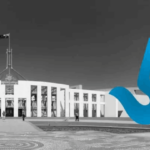NSW Greens and Civil Liberties Groups Are Aiming to Protect Citizens Rights in Law

Following her earlier announcement that she’ll be tabling a Human Rights Act 2025, NSW Greens MP for Newtown Jenny Leong is hosting an online forum, alongside NSW Council for Civil Liberties president Timothy Roberts later this month, to discuss the urgent need for a NSW Human Rights Act. And the page promoting the discussion points out that while our state doesn’t have one, others do.
A Human Rights Act is legislation that sets out specific rights people living in a jurisdiction have protected. Such an Act further serves to ensure that all laws and government policies are made in accordance with those rights. Rights law serves to empower people to take action when their rights have been violated by the state or some other entity, but for some reason in NSW there’s a dearth.
The ACT passed its Human Rights Act in 2004. Victoria passed its Charter of Human Rights and Responsibilities Act in 2006, while Queensland enacted its Human Rights Act in 2009. But a further question beyond why NSW hasn’t followed the lead of these other jurisdictions is, why have Australian governments taken so long to commence enshrining the rights of constituents in law.
As for how the NSW government is currently “playing fast and loose with our human rights”, as they’re not protected in law, the page spruiking the 20 October Let’s Talk: A Human Rights Act for NSW lists the decimation of the right to protest in NSW, certain recently passed hate speech laws and the recent bail crackdown that disproportionately impacts First Nations kids.
So, the suggestion is that if the people of the NSW constituency proactively get behind a Human Rights Act (HRA) for this state, then there is a clear path for the Greens to get these long-sought-after protections and empowerments over the line, as the NSW Labor government is in the minority, and the obvious reason for the lack of rights protections across the continent is both major parties.
A constituency ready for rights protections
NSW attorney general Michael Daley responded to Leong’s query in the lower house about whether his government would be willing to work with the Greens on rights protections for the people of NSW, and the state’s chief lawmaker responded that it was, although it had “not been a priority for his government to date”, which was no surprise as upholding rights has never been a priority for any NSW government.
There is widespread support for such laws to be legislated in NSW. The Human Rights Act for NSW alliance involves more than 40 member organisations, including the NSW Bar Association, Australian Lawyers for Human Rights, Community Legal Centres NSW, Amnesty International, the Human Rights Law Centre, NSW Society of Labor Lawyers, National Justice Project and the Aboriginal Legal Service.
In the lead up to Leong giving notice in parliament of her pending Human Rights Bill 2025, the Human Rights Act for NSW campaign held a series of events raising awareness, which has included input from the NSW Bar Association and legal professionals from NSW Labor, as well as a forum that featured key proponent for a HRA for NSW, former High Court Justice Michael Kirby.
Community support for a HRA has grown since the last campaign to see rights law enacted in this state, which occurred late in the 2010s, as the imposition of the 2020-21 COVID lockdowns and opposition to its restrictions resulted in constituents asking questions about the rights of governments to tell them to stay home and not cross borders, only to find they had no rights protections in law.
NSWCCL president Timonthy Roberts remarked at the time Leong announced her legislation that a HRA for NSW would “significantly improve the way our parliament, government and public entities develop laws, policies and make decisions. It would also create accessible pathways that everyone in NSW can use to take action for a solution if their human rights are breached.”
No major barrier to rights law beside the majors
Roberts, a NSW lawyer, further notes that the rights and freedoms that would be set out in a law protecting them in this state would be those contained in the International Covenant on Civil and Political Rights (ICCPR) and the International Covenant on Economic, Social and Cultural Rights (ICESCR).
Australia ratified the ICCPR in 1980 and the ICESCR in 1976. This means that our nation has agreed to act in accordance with these rights on the international stage. However, as international relations globally at present reveal, these nonbinding laws don’t always result in human rights being upheld.
Australia is the only western liberal democracy without a Human Rights Act. As former High Court Justice Kirby set out in a 1994 article, the delegates who drafted the Australian Constitution in the 1890s had contemplated inserting rights into the nation’s founding document in the same way that the US Constitution includes the Bill of Rights.
However, as Kirby recalled there were concerns that rights protections in the Constitution might undermine the types of “discriminatory provisions of the law of that time”, especially those that “disadvantaged Aboriginal people and the Chinese in Australia”. So, as rights law results in an inability to legislate based on race, the architects of this nation’s founding document abandoned it.
The Australian Human Rights Commission produced a position paper on a Human Rights Act for the nation of Australia in March 2023. It called on the federal Labor to consider a dialogue model HRA, which provides that there’s a formal exchange between the three branches of government – the executive, the legislature and the judiciary – as they all work together to uphold rights.
A subsequent Parliamentary Joint Committee on Human Rights’ inquiry into Australia’s human rights framework tabled its report in mid-2024, recommending that the Albanese government pass a dialogue model HRA to protect rights at the national level. However, federal Labor has since let this recommendation fade into memory, as rights erosions on the international stage are escalating.
The types of basic rights the AHRC recommends should be protected federally are the same sorts of rights that aren’t protected in NSW either. These include the right to equality, non-discrimination, the right to life, privacy, freedom of movement, liberty, the right to a fair hearing, freedom from slavery, cultural rights and the right to an adequate standard of living.
Leong has also underscored that she’ll be prioritising rights around housing, healthcare and education.
Resolving rights matters
A common understanding as to why major party politicians might baulk at the suggestion of rights protections for the people is that it curbs the ability of what lawmakers and policymakers can progress in parliament. An invasive law is that much more invasive and easier to deny when rights are protected. So, rights protections restrict government power.
Another key benefit that comes from rights protections is the ability to seek legal recourse when an individual’s rights have been violated by the authorities or another entity. Such a framework could be legislated to allow NSW constituents to take rights disputes to a body that would facilitate a conciliation process, which, if unsuccessful, could then see the issue resolved in a higher court.
Australian Lawyers for Human Rights (ALHR) vice president Kerry Weste is a key advocate for a Human Rights Act for NSW. The lawyer noted earlier this year that people in states and territories with rights protections in law at present are able to seek assistance in matters, including domestic violence, public housing and aged care, in a manner that people in this state cannot.
“It’s time for NSW to begin a conversation about putting in place similar laws to protect the wellbeing of everyone in our state,” Weste underscored.
“Holding a public inquiry into a Human Rights Act for NSW would give everyone in our state the chance to design a law that meets the needs of our many different communities.”


